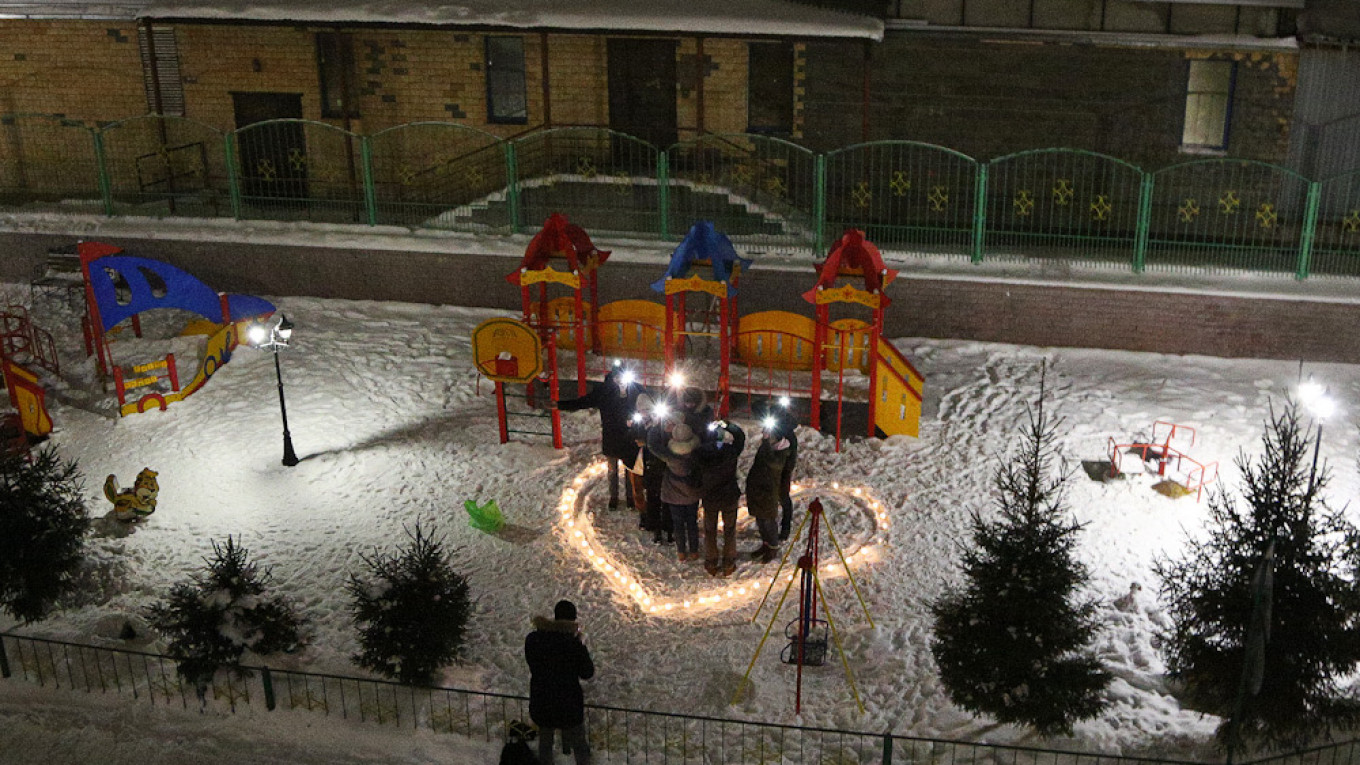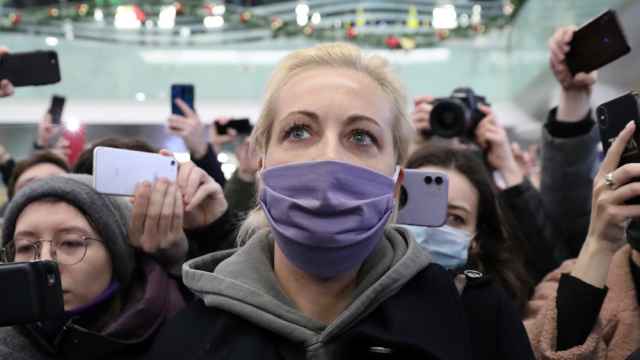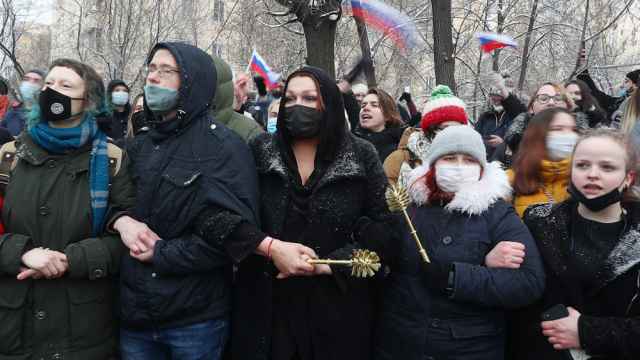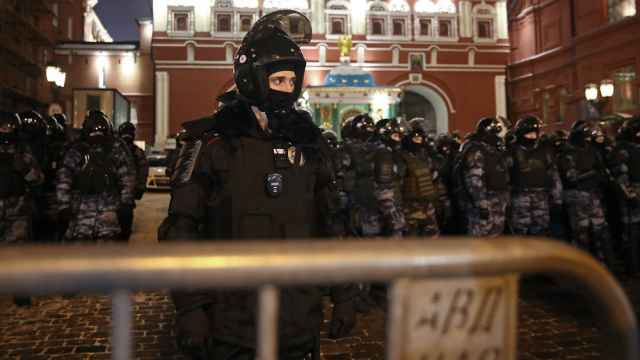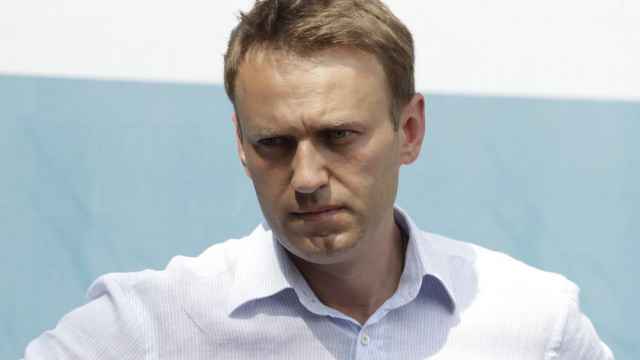Courtyard protests across Russia in support of jailed Kremlin critic Alexei Navalny were a success despite lacking the massive crowds of previous rallies, his team said Monday.
The Valentine’s Day demonstrations saw Navalny supporters hold up flashlights and candles in residential courtyards rather than stage traditional street protests. Photos from the event flooded social media with a trending hashtag that translates to “Love is stronger than fear.”
“Yesterday's action was planned in such a way that it’s fundamentally impossible to count how many people came out — and there were no detainees,” Navalny’s top aide Leonid Volkov said in a Facebook post Monday.
Volkov complained that journalists were fixated on the number of people who took part in the event and the number of people detained.
“Instead of discussing [the protests’] content and political meaning, there is always just a discussion of numbers. Always. But not this time; we broke the mold,” wrote Volkov, who had announced plans for Sunday’s protests from his current residence of Lithuania.
Based on the number of social media posts, it can be assumed that tens of thousands of Russians took part in Sunday’s event, Ivan Zhdanov, the director of Navalny’s Anti-Corruption Foundation, told the independent Dozhd news broadcaster.
Tens of thousands of Russians took to the streets on Jan. 23 and Jan. 31 and Feb. 2 in reaction to Navalny’s jailing and his investigation into President Vladimir Putin’s alleged palace. The rallies were some of the largest in Russia’s recent history and were met with mass detentions and widespread allegations of police violence.
The Kremlin said Monday that there were no mass arrests Sunday because the protesters had not violated any laws.
A Message from The Moscow Times:
Dear readers,
We are facing unprecedented challenges. Russia's Prosecutor General's Office has designated The Moscow Times as an "undesirable" organization, criminalizing our work and putting our staff at risk of prosecution. This follows our earlier unjust labeling as a "foreign agent."
These actions are direct attempts to silence independent journalism in Russia. The authorities claim our work "discredits the decisions of the Russian leadership." We see things differently: we strive to provide accurate, unbiased reporting on Russia.
We, the journalists of The Moscow Times, refuse to be silenced. But to continue our work, we need your help.
Your support, no matter how small, makes a world of difference. If you can, please support us monthly starting from just $2. It's quick to set up, and every contribution makes a significant impact.
By supporting The Moscow Times, you're defending open, independent journalism in the face of repression. Thank you for standing with us.
Remind me later.


